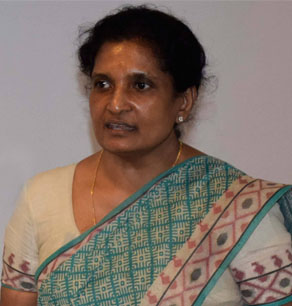Sri Lanka Journals Online (SLJOL)
Sri Lanka Journals Online (SLJOL) provides access to Sri Lankan published research and increases worldwide knowledge of indigenous scholarship. It is a database of peer reviewed scholarly journals published in Sri Lanka, covering the full range of academic disciplines from Agriculture to Engineering, Medicine to Social Sciences.
SLJOL enables research materials and publications to become much more available within Sri Lanka and also ensures that Sri Lankan expertise is transferred abroad to much greater effect. The service is free to publishers and editors and also to users.
SLJOL is a member of the Journals Online (JOL) project supported by the International Network for the Availability of Scientific Publications (INASP) to maximize worldwide knowledge of 'indigenous scholarship' and South to North knowledge sharing.
The JOL project is also supported by the the Public Knowledge Project (PKP), Ubiquity Press and CrossRef and is managed by the National Science Foundation of Sri Lanka since 2013.
Coverage of SLJOL
At present over 75 journals are covered by SLJOL listing 8548 full text articles.
How journals can join SLJOL
SLJOL is not a publisher, SLJOL provides a service to the journals by hosting their content online, and actively promoting the website to encourage discovery of these titles and their articles.
Journals are selected for inclusion on SLJOL using the following criteria:
- They are scholarly in content, and contain original research (in addition to other content).
- Their content is peer reviewed and quality controlled.
- They are able to provide all content for inclusion on SLJOL (tables of contents, abstracts and PDFs of full text) in electronic format.
- They are published within Sri Lanka. Management of publishing strategy, business development and production operation are all run from Sri Lanka.
If your publication fulfills the above criteria and you would like your publication to be hosted on SLJOL.
Copyright
Copyright of all content is retained by the journals or authors. Each journals will need to give permission for any use or re-use of the content that falls outside Fair Use.
Potential users
Each user has a different level of access within the system. This means that for example a Journal Manager is able to handle various roles needed to run the journal. A reader however, will only be able to view the publications and will not be able to access the system. Possible users are noted below listed from the lowest level of access, to the highest level of access.
- Readers
- Reviewers
- Proof editors
- Section editors
- Journal Managers
- Authors
- Copy editors
- Layout editors
- Editors
- Site Administrator
 NSLRC
NSLRC
